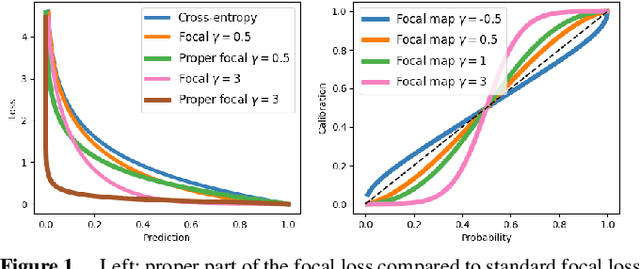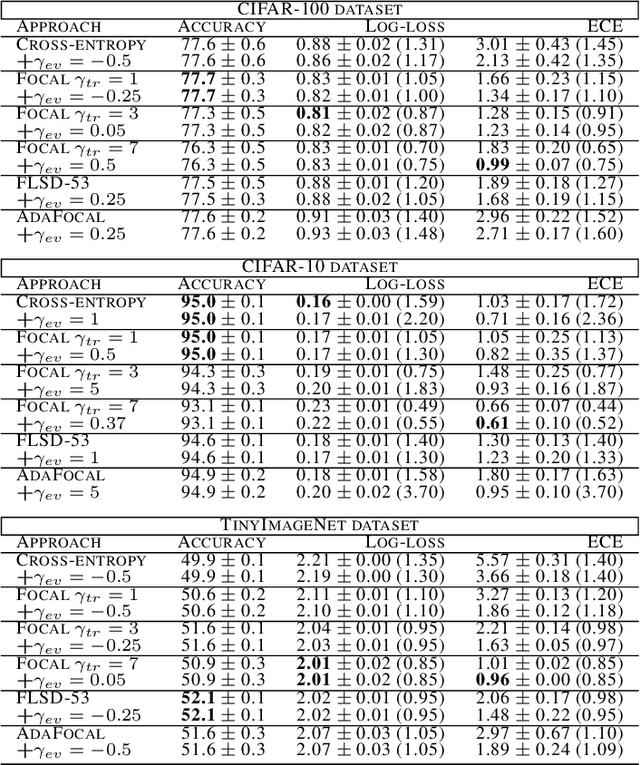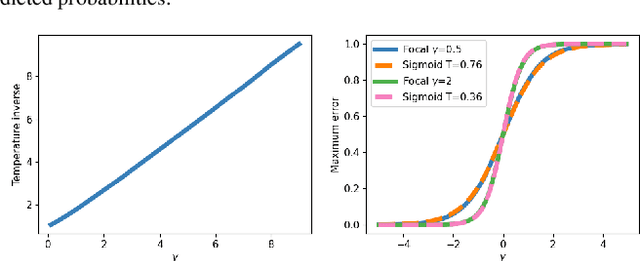Improving Calibration by Relating Focal Loss, Temperature Scaling, and Properness
Paper and Code
Aug 21, 2024



Proper losses such as cross-entropy incentivize classifiers to produce class probabilities that are well-calibrated on the training data. Due to the generalization gap, these classifiers tend to become overconfident on the test data, mandating calibration methods such as temperature scaling. The focal loss is not proper, but training with it has been shown to often result in classifiers that are better calibrated on test data. Our first contribution is a simple explanation about why focal loss training often leads to better calibration than cross-entropy training. For this, we prove that focal loss can be decomposed into a confidence-raising transformation and a proper loss. This is why focal loss pushes the model to provide under-confident predictions on the training data, resulting in being better calibrated on the test data, due to the generalization gap. Secondly, we reveal a strong connection between temperature scaling and focal loss through its confidence-raising transformation, which we refer to as the focal calibration map. Thirdly, we propose focal temperature scaling - a new post-hoc calibration method combining focal calibration and temperature scaling. Our experiments on three image classification datasets demonstrate that focal temperature scaling outperforms standard temperature scaling.
 Add to Chrome
Add to Chrome Add to Firefox
Add to Firefox Add to Edge
Add to Edge